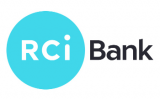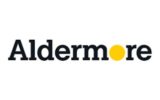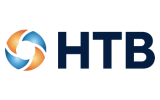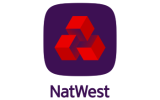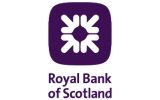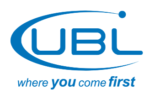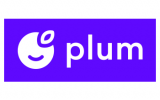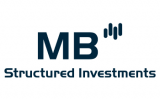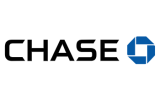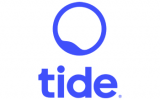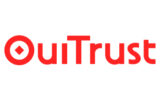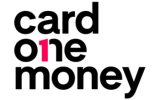Account
OakNorth Easy Access Limited Edition Account
More Information About This Account
- Interest calculated monthly
- Unlimited deposits and withdrawals
- Open and manage online
- FSCS Protected
- Must retain a minimum balance of £20,000 in the account
- Must be UK resident and be aged 18 or older
Account
Leeds Building Society Limited Issue Online Access Account
Interest Rate
4.67%
Gross/AER
More Information About This Account
- Interest paid annually
- Unlimited deposits and withdrawals
- Open and manage online
- FSCS Protected
- Must be UK resident and be aged 18 or older
Account
Investec Online Flexi Saver
More Information About This Account
- Instant access to your savings
- Unlimited deposits and withdrawals
- Interest paid monthly, either to a linked current account, or adding it to your Online Flexi Saver account
- Easy application process, you just need a UK mobile phone and UK driving licence or passport
- Manage account online
- Maximum balance £250,000
- Must be aged 18 or older and have a UK address
- Must have a linked UK current account
- Your eligible deposits with Investec Bank are protected up to a total of £85,000 by the Financial Services Compensation Scheme (FSCS)
Account
RCI Bank Freedom Savings Account
Interest Rate
4.60%
Gross/AER
More Information About This Account
- No notice periods
- Unlimited payments and withdrawals
- Interest paid monthly or annually
- Manage account online
- Which? Recommended Savings Provider
- Must be UK resident
- Must be aged 18 or older
- Your eligible deposits with RCI Bank UK Limited are protected up to a total of £85,000 by the Financial Services Compensation Scheme (FSCS)
Account
Yorkshire Building Society Easy Access Saver
Interest Rate
4.60%
Gross/AER
More Information About This Account
- Save from £1
- Unlimited payments and withdrawals
- Interest paid annually
- Open in a single or a joint name
- Maximum deposit £500,000
- Open and manage account online
- FSCS Protected
- Must be UK resident
- Must be aged 16 or older
Account
Aldermore Easy Access Account
Interest Rate
4.50%
Gross/AER
More Information About This Account
- Monthly interest
- Manage your account online
- Unlimited withdrawals
- Covered by the FSCS
- Must be UK resident
- Must be aged 18 or older
- New customers only
- Maximum deposit £1,000,000
Account
Post Office Online Saver
Interest Rate
4.40%
Gross/AER
More Information About This Account
- Choose monthly or annual interest payments
- Unlimited deposits and withdrawals
- 24/7 access to your savings
- Open and manage online
- FSCS protected
- After 12 months the rate will revert to the underlying rate, currently 1.55% gross/ AER variable
- Post Office Online Saver is provided by Bank of Ireland UK
- Must be UK resident
- Must be aged 18 or older
Account
Hampshire Trust Bank Online Easy Access Account
Interest Rate
4.40%
Gross/AER
More Information About This Account
- Unlimited payments and withdrawals
- Interest paid annually
- Open in a single or a joint name
- Maximum deposit £250,000
- FSCS Protected
- Winner of Platinum Feefo Trusted Service Award in 2024
- Must be UK resident
- Must be aged 18 or older
Account
Chip Instant Access Account
More Information About This Account
- A new savings account from Chip built to move with the Bank of England and reward you faster than the banks
- Interest paid monthly
- Deposit and withdraw almost instantly
- No fees or charges for holding account
- FSCS eligible on your deposits
- Must be UK resident
- Must be aged 18 or older
Account
Leeds Building Society Home Deposit Saver
Interest Rate
5.15%
Gross/AER
Term
Withdrawals are limited to 1 each year
More Information About This Account
- The Home Deposit Saver lets you earn a competitive rate of interest whilst building up the deposit needed for your first or next home
- £500 bonus to boost your savings if you receive a residential purchase mortgage offer from Leeds Building Society
- Interest paid annually
- Open and manage online
- FSCS Protected
- You can only pay in up to £500 in a single month
- Withdrawals are limited to 1 each year
- You can deposit up to £30,000 in total
- Bonus eligibility criteria apply
- Must be UK resident and be aged 18 or older
Account
OakNorth Bank Base Rate Tracker 95 Day Notice Account
More Information About This Account
- The interest rate tracks the Bank of England (BoE) Base Rate
- Interest is calculated on the minimum daily balance and applied to the account on the first day of every subsequent month
- Open and manage account online
- Your eligible deposits are protected up to £85,000 by the Financial Services Compensation Scheme
- The maximum deposit you may pay into any one OakNorth Account is £500,000. The maximum amount (excluding the interest) that you will be allowed to hold on deposit with OakNorth Bank across multiple accounts is also £500,000
- Unlimited withdrawals, subject to 95 days notice
- Available to individuals, aged 18 or over, who are UK residents
Account
Investec Bank 90 Day Notice Account
More Information About This Account
- Unlimited deposits and withdrawals
- Interest paid monthly: can be added to your Notice Saver or paid to your linked account
- Easy application process, you just need a UK mobile phone and UK driving licence or passport
- Manage account online
- Maximum balance £250,000
- Withdrawals subject to 90 days notice
- Must be aged 18 or older and have a UK address
- Must have a linked UK current account
Account
Chip Easy Access Saver Account
Interest Rate
Up to 5.00%
AER
More Information About This Account
- 3 penalty-free withdrawals in a 12 month period
- The rate is a variable tracker with a gross rate of 1.00% under the Bank of England base rate
- Underlying rate is 5.00% AER (variable tracker) and a 0.93% 12 month boost takes it to 5.00% AER (assuming the current Bank of England rate of 5.00%)
- Interest paid monthly
- Deposit and withdraw almost instantly
- No fees or charges for holding account
- FSCS eligible on your deposits
- If a customer makes more than 3 withdrawals within a 12 month period the rate will revert to either 3.90% AER (variable tracker with boost applied) or 2.97% AER (variable tracker) for the remainder of the 12 month period since opening the account
- Must be UK resident
- Must be aged 18 or older
Account
RCI Bank 95 Day Notice Account
Interest Rate
4.95%
Gross/AER
More Information About This Account
- Interest paid monthly or annually
- Manage account online
- Which? Recommended Savings Provider
- Unlimited withdrawals subject to 95 days notice
- Must be UK resident
- Must be aged 18 or older
- Your eligible deposits with RCI Bank UK Limited are protected up to a total of £85,000 by the Financial Services Compensation Scheme (FSCS)
Account
RCI E-Volve 14 Day Notice Account
Interest Rate
4.65%
Gross/AER
Ethical savings account
All funds deposited will be used to fund pure electric vehicles and charging facilities
More Information About This Account
- All funds deposited into the RCI Bank E-Volve Savings 14 Day Notice Account will be used to fund pure electric vehicles and charging facilities
- Interest paid monthly or annually
- Manage account online
- UK-based support, seven days a week
- Which? Recommended Savings Provider
- Unlimited withdrawals subject to 14 days notice
- Must be UK resident
- Must be aged 18 or older
- Your eligible deposits with RCI Bank UK Limited are protected up to a total of £85,000 by the Financial Services Compensation Scheme (FSCS)
Account
Aldermore 30 Day Notice Account
Interest Rate
4.55%
Gross/AER
More Information About This Account
- Monthly interest
- Manage your account online
- Unlimited deposits
- Covered by the FSCS
- Must be UK resident
- Must be aged 18 or older
- Unlimited withdrawals subject to 30 days notice
- Maximum deposit £1,000,000
Account
Aldermore Double Access Account
Interest Rate
Up to 4.90%
Gross/AER
More Information About This Account
- 4.90% AER if customer makes two or fewer withdrawals within an anniversary year
- Monthly or annual interest
- Manage your account online
- Covered by the FSCS
- If a customer makes three or more withdrawals in an anniversary year the rate reduces to 1.50% from the date of the third withdrawal
- Must be UK resident and be aged 18 or older
Account
Nationwide 1 Year Triple Access Online Saver
Interest Rate
Up to 4.10%
Gross/AER
Term
1 Year, with option to make three free withdrawals
More Information About This Account
- Make up to three withdrawals during the 12-month term of this account
- Open with £1
- Manage your account online
- Interest paid at maturity
- FSCS Protected
- Must be UK resident and aged 16 or older
- Make more than three withdrawals and the rate drops to 2.10% AER/gross p.a. (variable)
- Not available in branch
Account
Aldermore Bank 9 Month Fixed Rate Bond
Interest Rate
4.65%
Gross/AER
More Information About This Account
- Interest paid monthly or on maturity
- Open an account singly or jointly
- FSCS Protected
- Must be UK resident and aged 18 or older
- No withdrawals permitted
Account
Hampshire Trust Bank 1 Year Fixed Rate Bond
Interest Rate
4.60%
Gross/AER
More Information About This Account
- Interest paid on maturity
- Open in a single or a joint name
- Maximum deposit £250,000
- FSCS Protected
- Winner of Platinum Feefo Trusted Service Award in 2024
- Must be UK resident and be aged 18 or older
- No withdrawals permitted
Account
Aldermore Bank 1 Year Fixed Rate Bond
Interest Rate
4.57%
Gross/AER
More Information About This Account
- Interest paid monthly or on maturity
- Open an account singly or jointly
- FSCS Protected
- Must be UK resident and aged 18 or older
- No withdrawals permitted
Account
Investec 1-Year Fixed Rate Saver
Interest Rate
4.50%
Gross/AER
More Information About This Account
- Interest paid on maturity
- Automatic repayment to your linked account
- Maximum deposit £250,000
- FSCS Protected
- Must have a UK residential address and be aged 18 or older
- No withdrawals permitted
Account
RCI Bank 1 Year Fixed Rate Bond
Interest Rate
4.30%
Gross/AER
More Information About This Account
- Interest paid monthly or annually
- Unlimited top-ups for the first 30 days
- Which? Recommended Savings Provider
- Your eligible deposits with RCI Bank UK Limited are protected up to a total of £85,000 by the Financial Services Compensation Scheme (FSCS)
- Must be UK resident and aged 18 or older
- No withdrawals permitted
- Maximum deposit £1,000,000
Account
Hampshire Trust Bank 18 Month Fixed Rate Bond
Interest Rate
4.51%
Gross/AER
More Information About This Account
- Interest paid annually
- Open in a single or a joint name
- Maximum deposit £250,000
- FSCS Protected
- Winner of Platinum Feefo Trusted Service Award in 2024
- Must be UK resident and be aged 18 or older
- No withdrawals permitted
Account
Aldermore Bank 18 Month Fixed Rate Bond
Interest Rate
4.10%
Gross/AER
More Information About This Account
- Interest paid monthly or annually
- Open an account singly or jointly
- FSCS Protected
- Must be UK resident and aged 18 or older
- No withdrawals permitted
Account
Hampshire Trust Bank 2 Year Fixed Rate Bond
Interest Rate
4.51%
Gross/AER
More Information About This Account
- Interest paid annually
- Open in a single or a joint name
- Maximum deposit £250,000
- FSCS Protected
- Winner of Platinum Feefo Trusted Service Award in 2024
- Must be UK resident and be aged 18 or older
- No withdrawals permitted
Account
RCI Bank 2 Year Fixed Rate Bond
Interest Rate
4.40%
Gross/AER
More Information About This Account
- Interest paid monthly or annually
- Unlimited top-ups for the first 30 days
- Which? Recommended Savings Provider
- Your eligible deposits with RCI Bank UK Limited are protected up to a total of £85,000 by the Financial Services Compensation Scheme (FSCS)
- Must be UK resident and aged 18 or older
- No withdrawals permitted
- Maximum deposit £1,000,000
Account
Aldermore Bank 2 Year Fixed Rate Bond
Interest Rate
4.40%
Gross/AER
More Information About This Account
- Interest paid monthly or annually
- Open an account singly or jointly
- FSCS Protected
- Must be UK resident and aged 18 or older
- No withdrawals permitted
Account
Investec 2-Year Fixed Rate Saver
Interest Rate
4.30%
Gross/AER
More Information About This Account
- Interest paid annually
- Automatic repayment to your linked account
- Maximum deposit £250,000
- FSCS Protected
- Must have a UK residential address and be aged 18 or older
- No withdrawals permitted
Account
NatWest Select Current Account
Features
Everyday current account
Funding Required
No minimum
More Information About This Account
- Great money management tools with our mobile banking app. ‘Criteria Apply’
- Multiple ways to pay: Apple Pay, Google Pay™ and Contactless Visa Debit Card. Limits apply
- Arranged overdraft available (subject to eligibility and lending criteria)
- No monthly fee
- Defaqto 5* rated
- Must be 18 or older and UK resident
- Representative example: Effective Annual Rate: 39.49% EAR (variable). Representative APR: 39.49% (variable). Assumed credit limit: £1,200
- The monthly cap on unarranged overdraft charges for our standard adult current accounts is £18.80
- What’s the cost of borrowing of £500: Zero days (you’ve not yet used your overdraft) – you’d pay in total £0.00. One day – you’d pay in total £0.46. Five days – you’d pay in total £2.31. Seven days – you’d pay in total £3.24. Thirty days – you’d pay in total £13.87
Account
Santander Everyday Current Account
Features
The current account for your every day banking needs
Funding Required
No minimum
More Information About This Account
- No minimum monthly funding or monthly fee to maintain the account
- Get cashback, vouchers, prize draws and other offers personalised to you when you use Santander Boosts (you must have a personal Santander debit or credit card, be 18 years or over and be registered for Online and Mobile Banking)
- Stress-free account switching in 7 days with the Current Account Switch Service
- £300 ATM withdrawal per day
- Arranged Overdraft facility (subject to status)
- Online and Mobile Banking with text and email alerts
- Must be 18 or older and live in the UK permanently
- 39.94% EAR overdraft charge
Account
first direct 1st Account
Switch Offer
£175 welcome bonus
when you switch to a 1st Account
Funding Required
No monthly minimum
Interest Rate
Access to 7% AER/Gross on Regular Savings*
SPECIAL OFFER – Switch to a 1st Account and bank £175**
More Information About This Account
- *Put away between £25 and £300 for a fixed 12 month term. If you save £300 every month for 12 months and qualify for the 7.00% AER/gross p.a. interest rate, you’ll earn approximately £136.50 interest (gross). Interest is calculated daily and paid 12 months after you opened the account. AER stands for Annual Equivalent Rate. This shows you what the rate would be if interest were paid and compounded each year. Gross is the rate of interest if interest were paid and not compounded each year. No partial withdrawals allowed. Early closure will result in interest being paid at the standard account variable rate.
- £250 interest-free overdraft (subject to status)
- No minimum monthly funding
- No monthly account fee
- Mobile banking app
- No first direct fees for when spending abroad, withdrawing cash from the UK or when making a debit card payment in a foreign currency in the UK
- UK based contact centre
- Easy switching with the Current Account Switch Service
- Must be 18 or older
- Must be UK resident
- **Open a 1st account on or after 9th September and before offer is withdrawn. Switch your everyday banking to using the Current Account Switch Service (CASS). Deposit a minimum of £1,000 (in single or multiple deposits) in your account and within 45 days of opening your first direct 1st Account. Complete a full CASS switch including at least two Direct Debits or Standing Orders must be made within 45 Days of us opening your first direct 1st Account. Register and Log onto digital banking, within 45 days of us opening your first direct 1st Account. Use your new 1st account debit card at least 5+ times. Be a new customer to first direct, who has not previously held a first direct product, or has opened an HSBC current account on or after 1 January 2018
Account
Santander Edge Up Current Account
Features
3.50% AER (3.45% gross variable) on balances up to £25,000, and up to 1% cashback on household bills, supermarket and travel costs (exclusions apply)
Funding Required
£1,500 per month
More Information About This Account
- 3.50% AER/3.45% gross (variable) on balances up to £25,000
- 1% cashback (up to £15 a month) on selected household bills when you pay by Direct Debit
- 1% cashback (up to £15 a month) at supermarkets and on travel costs when you use your debit card (exclusions apply)
- Free to use Santander Edge Up debit card outside the UK
- Get cashback, vouchers, prize draws and personalised offers with Santander Boosts , free rewards service
- Must be 18 or older and live in the UK permanently
- Monthly fee of £5
- Must pay a minimum of £1,500 into the account each month
- Must have 2 active Direct Debits
- Arranged overdraft available (subject to status)
- Arranged overdraft interest rate of 39.94% APR / EAR (variable)
Account
Santander Edge Current Account
Features
Earn cashback every month on selected household bills and essential spend, plus get access to an exclusive savings account paying 6% AER
Funding Required
£500 per month
More Information About This Account
- Earn 1% cashback every month on selected household bills paid by Direct Debit, capped at up to £10 each month
- Earn 1% cashback every month on supermarket and travel spend when you use your debit card, capped at £10 each month
- Access to Santander Edge Saver with 6.00% AER / 5.84% gross (variable) interest up to £4,000 with 1.50% AER / 1.49% gross (variable) bonus rate for the 12 months from opening
- Get cashback, vouchers, prize draws and other offers personalised to you when you use Santander Boosts
- No fees or charges for international payments or CHAPS payments
- Arranged overdraft interest rate of 39.94% APR/EAR (variable)
- For cashback on household bills and essential spend, you must pay a minimum of £500 into your account each month, have 2 active Direct Debits, be over 18 and live in the UK permanently
- Paper-free account
- To be eligible for Santander Boosts, you must have a personal Santander debit or credit card, be 18 years or over and be registered for Online and Mobile Banking
- £3 monthly fee
Account
Royal Bank of Scotland Select Current Account
Features
Everyday current account
Funding Required
No minimum
More Information About This Account
- Great money management tools with our mobile banking app. ‘Criteria Apply’
- Multiple ways to pay: Apple Pay, Google Pay™ and Contactless Visa Debit Card. Limits apply
- Arranged overdraft available (subject to eligibility and lending criteria)
- No monthly fee
- Defaqto 5* rated
- Must be 18 or older and UK resident
- Representative example: Effective Annual Rate: 39.49% EAR (variable). Representative APR: 39.49% (variable). Assumed credit limit: £1,200
- The monthly cap on unarranged overdraft charges for our standard adult current accounts is £18.80
- What’s the cost of borrowing of £500: Zero days (you’ve not yet used your overdraft) – you’d pay in total £0.00. One day – you’d pay in total £0.46. Five days – you’d pay in total £2.31. Seven days – you’d pay in total £3.24. Thirty days – you’d pay in total £13.87
Account
Aldermore 120 Day Notice Account
Interest Rate
4.80%
Gross/AER
More Information About This Account
- Monthly interest
- Manage your account online
- Unlimited deposits
- Covered by the FSCS
- Must be UK resident
- Must be aged 18 or older
- Unlimited withdrawals subject to 120 days notice
- Maximum deposit £1,000,000
Account
UBL 95 Day Notice Account
Interest Rate
2.71%
Gross/AER
More Information About This Account
- Register for a free Raisin UK Account to apply for product and receive a £30 cash bonus for deposits of £10,000 or more
- Interest paid monthly
- Maximum deposit £85,000
- FSCS Protected
- Withdrawals subject to 95 days notice
- Must be UK resident and aged 18 or older
Account
Hampshire Trust Bank 3 Year Fixed Rate Bond
Interest Rate
4.41%
Gross/AER
More Information About This Account
- Interest paid annually
- Open in a single or a joint name
- Maximum deposit £250,000
- FSCS Protected
- Winner of Platinum Feefo Trusted Service Award in 2024
- Must be UK resident and be aged 18 or older
- No withdrawals permitted
Account
RCI Bank 3 Year Fixed Rate Bond
Interest Rate
4.20%
Gross/AER
More Information About This Account
- Interest paid monthly or annually
- Unlimited top-ups for the first 30 days
- Which? Recommended Savings Provider
- Your eligible deposits with RCI Bank UK Limited are protected up to a total of £85,000 by the Financial Services Compensation Scheme (FSCS)
- Must be UK resident and aged 18 or older
- No withdrawals permitted
- Maximum deposit £1,000,000
Account
Aldermore Bank 3 Year Fixed Rate Bond
Interest Rate
4.20%
Gross/AER
More Information About This Account
- Interest paid monthly or annually
- Open an account singly or jointly
- FSCS Protected
- Must be UK resident and aged 18 or older
- No withdrawals permitted
Account
Investec 3-Year Fixed Rate Saver
Interest Rate
4.15%
Gross/AER
More Information About This Account
- Interest paid annually
- Automatic repayment to your linked account
- Maximum deposit £250,000
- FSCS Protected
- Must have a UK residential address and be aged 18 or older
- No withdrawals permitted
Account
Hampshire Trust Bank 4 Year Fixed Rate Bond
Interest Rate
4.27%
Gross/AER
More Information About This Account
- Interest paid annually
- Open in a single or a joint name
- Maximum deposit £250,000
- FSCS Protected
- Winner of Platinum Feefo Trusted Service Award in 2021
- Must be UK resident and be aged 18 or older
- No withdrawals permitted
Account
Aldermore Bank 4 Year Fixed Rate Bond
Interest Rate
4.20%
Gross/AER
More Information About This Account
- Interest paid monthly or annually
- Open an account singly or jointly
- FSCS Protected
- Must be UK resident and aged 18 or older
- No withdrawals permitted
Account
RCI Bank 4 Year Fixed Rate Bond
Interest Rate
3.80%
Gross/AER
More Information About This Account
- Interest paid monthly or annually
- Unlimited top-ups for the first 30 days
- Which? Recommended Savings Provider
- Your eligible deposits with RCI Bank UK Limited are protected up to a total of £85,000 by the Financial Services Compensation Scheme (FSCS)
- Must be UK resident and aged 18 or older
- No withdrawals permitted
- Maximum deposit £1,000,000
Account
Hampshire Trust Bank 5 Year Fixed Rate Bond
Interest Rate
4.27%
Gross/AER
More Information About This Account
- Interest paid annually
- Open in a single or a joint name
- Maximum deposit £250,000
- FSCS Protected
- Winner of Platinum Feefo Trusted Service Award in 2024
- Must be UK resident and be aged 18 or older
- No withdrawals permitted
Account
Aldermore Bank 5 Year Fixed Rate Bond
Interest Rate
4.20%
Gross/AER
More Information About This Account
- Interest paid monthly or annually
- Open an account singly or jointly
- FSCS Protected
- Must be UK resident and aged 18 or older
- No withdrawals permitted
Account
RCI Bank 5 Year Fixed Rate Bond
Interest Rate
3.80%
Gross/AER
More Information About This Account
- Interest paid monthly or annually
- Unlimited top-ups for the first 30 days
- Which? Recommended Savings Provider
- Your eligible deposits with RCI Bank UK Limited are protected up to a total of £85,000 by the Financial Services Compensation Scheme (FSCS)
- Must be UK resident and aged 18 or older
- No withdrawals permitted
- Maximum deposit £1,000,000
More Information About This Account
- *Includes a bonus of 0.88% AER (variable) if account held for 12 months
- Transfer in any ISAs you hold with other providers
- Interest rates drop if more than three withdrawals per year
- Covered by FSCS
- Rate when you transfer in your existing ISA – 4.04% AER (variable)
- Rate for each 12-month period after your first 12 months – 4.04% AER (variable)
- Rate when balance drops below £100 or after your fourth annual withdrawal – 3.00% AER (variable)
- Must be UK resident and be aged 18 or older
Account
Leeds Building Society Limited Issue Online Easy Access Cash ISA
Interest Rate
4.67%
Gross/AER
More Information About This Account
- Interest paid annually
- Unlimited deposits and withdrawals
- ISA transfers also allowed in
- Open and manage online
- FSCS Protected
- Must be UK resident and be aged 18 or older
Account
moneybox Cash ISA
More Information About This Account
- *The Moneybox Cash ISA includes a 4.25% AER variable underlying rate and a bonus rate of 0.50% for the first 12 months. Up to three withdrawals can be made within each 12-month period from the date of opening without affecting the interest rate
- Transfer in any ISAs you hold with other providers into a Moneybox Cash ISA, entirely in-app
- Covered by FSCS
- If more than three withdrawals made within each 12-month period, a lower rate of 0.75% (variable) will be applied for the rest of that 12-month period
- The lower interest rate of 0.75% will also apply if the account balance dips below £500, automatically returning to the higher interest rate when the balance returns to £500 or more again
- Must be UK resident and be aged 18 or older
Account
Aldermore Bank 30 Day Notice Cash ISA
Interest Rate
4.50%
Gross/AER
More Information About This Account
- Unlimited deposits and withdrawals
- ISA transfers in allowed
- FSCS Protected
- Must be UK resident and aged 16 or older
- Withdrawals subject to 30 days notice
Account
Nationwide 1 Year Triple Access Cash ISA
Interest Rate
Up to 4.10%
Gross/AER
Term
1 Year, with option to make three free withdrawals
More Information About This Account
- Tax free ISA account
- Make up to three withdrawals during the 12-month term of this account
- Open with £1 or transfer in existing ISA funds
- Invest up to £20,000 per tax year
- Manage your account online
- Interest paid at maturity
- FSCS Protected
- Must be UK resident and aged 16 or older
- Make more than three withdrawals and the rate drops to 2.10% AER/gross p.a. (variable)
- Not available in branch
Account
Aldermore Bank 1 Year Cash ISA
Interest Rate
4.56%
Gross/AER
More Information About This Account
- ISA transfers in allowed
- FSCS Protected
- Must be UK resident and aged 16 or older
- Withdraw cash early if you need to (subject to loss of interest)
Account
Post Office Online 1 Year Fixed Rate Cash ISA
Interest Rate
4.10%
Gross/AER
More Information About This Account
- Interest paid annually
- ISA transfers also allowed in (some providers charge a transfer fee)
- Open and manage online
- FSCS Protected
- Must be UK resident and be aged 18 or older
- Withdrawals permitted subject to 90 days loss of interest
- Online ISA is provided by OneFamily, savings in Post Office Cash ISAs are deposited with Bank of Ireland UK
Account
Aldermore Bank 2 Year Cash ISA
Interest Rate
4.35%
Gross/AER
More Information About This Account
- ISA transfers in allowed
- FSCS Protected
- Must be UK resident and aged 16 or older
- Withdraw cash early if you need to (subject to loss of interest)
Account
Post Office Online 2 Year Fixed Rate Cash ISA
Interest Rate
3.75%
Gross/AER
More Information About This Account
- Interest paid annually
- ISA transfers also allowed in (some providers charge a transfer fee)
- Open and manage online
- FSCS Protected
- Must be UK resident and be aged 18 or older
- Withdrawals permitted subject to 180 days loss of interest
- Online ISA is provided by OneFamily, savings in Post Office Cash ISAs are deposited with Bank of Ireland UK
Account
Aldermore Bank 3 Year Cash ISA
Interest Rate
4.05%
Gross/AER
More Information About This Account
- ISA transfers in allowed
- FSCS Protected
- Must be UK resident and aged 16 or older
- Withdraw cash early if you need to (subject to loss of interest)
Plan Name
IDAD Goldman Sachs Callable Growth Deposit Plan
Potential Return
8% pa
or 3 x Index growth (capped at a maximum return of 48%)
Deposit Taker: Goldman Sachs International Bank
Important Information: This is a structured deposit plan and is capital protected. There is a risk that the company backing the plan or any company associated with the plan may be unable to repay your initial investment and any returns stated. In this event you may be entitled to compensation from the Financial Services Compensation Scheme (FSCS), depending on your individual circumstances. In addition, you may not get back the full amount of your initial investment if the plan is not held for the full term.
More information on this product
- Plan can be ended early by Deposit Taker (Goldman Sachs International Bank)
- 2% per quarter if plan ends early (equivalent to 8% pa)
- 3 x FTSE 100 Index growth if plan runs full term (capped at a maximum return of 48%)
- Capital protected
- Maximum 6 year term
- Alternative to fixed rates
- Available for cash ISA, ISA transfer and direct investment
- Covered by the FSCS (Financial Services Compensation Scheme)
- Deadline for ISA transfer applications – 9 October2024
- Deadline for Direct & ISA applications – 23 October2024
- If plan runs full term returns not guaranteed. You may only receive a return of your original capital
- Minimum investment £10,000
- An arrangement fee applies to this plan
- If you withdraw your money during the plan you may get back less than you originally invested
Plan Name
Goldman Sachs FTSE 100 Deposit Kick Out Plan
Potential Return
5.90% pa
Deposit Taker: Goldman Sachs International Bank
Important Information: This is a structured deposit plan and is capital protected. There is a risk that the company backing the plan or any company associated with the plan may be unable to repay your initial investment and any returns stated. In this event you may be entitled to compensation from the Financial Services Compensation Scheme (FSCS), depending on your individual circumstances. In addition, you may not get back the full amount of your initial investment if the plan is not held for the full term.
More information on this product
- 5.90% for each year (not compounded) provided the FTSE 100 finishes above required kick out level
- Required kick out level reduces from 100% to to 95% over the term
- Potential to mature early, from year 4 onwards
- Maximum 6 year term
- Medium/long term alternative to fixed rates
- Covered by the FSCS (Financial Services Compensation Scheme)
- Available for Cash ISA, ISA transfer and direct investment
- Deadline for ISA transfer applications – 25 September 2024
- Deadline for Direct & ISA applications – 11 October 2024
- Returns not guaranteed. You may only receive a return of your original capital
- Minimum investment £10,000, or £5,000 if applying online
- An arrangement fee applies to this plan
- If you withdraw your money during the plan you may get back less than you originally invested
Plan Name
MB UK 3Y 90 Growth Deposit Plan
Potential Return
16.52%
at end of term
Deposit Taker: Barclays Bank plc
Important Information: This is a structured deposit plan and is capital protected. There is a risk that the company backing the plan or any company associated with the plan may be unable to repay your initial investment and any returns stated. In this event you may be entitled to compensation from the Financial Services Compensation Scheme (FSCS), depending on your individual circumstances. In addition, you may not get back the full amount of your initial investment if the plan is not held for the full term.
More information on this product
- 16.52% fixed return if the FTSE 100 Index ends the same or higher than 90% of Starting Level
- Capital protected
- 3 year term
- Medium term alternative to fixed rates
- Available for cash ISA, ISA transfer and direct investment
- Covered by the FSCS (Financial Services Compensation Scheme)
- Deadline for ISA transfer applications – 3 October 2024
- Deadline for Direct & ISA applications – 22 October 2024
- Returns not guaranteed. You may only receive a return of your original capital
- Minimum investment £5,000
- An arrangement fee applies to this plan
- If you withdraw your money during the plan you may get back less than you originally invested








